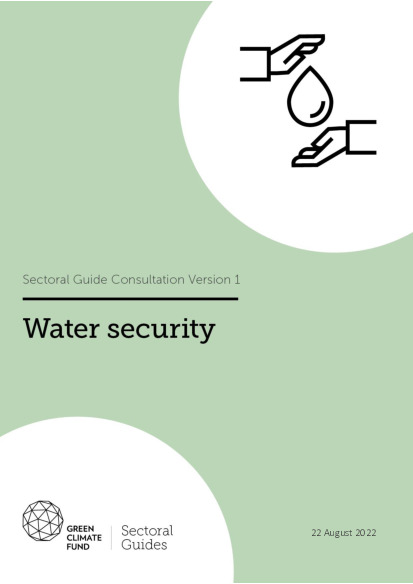Sectoral guide: Water security

Sectoral guide: Water security
Climate change is evident around the globe, and it requires bold actions now to achieve the Sustainable Development Goals (SDGs) and Paris Agreement. In addition, water is one of the world’s most essential commodities and demand for water service has increased tremendously following population growth, economic development and changing consuming patterns. Facing increasing demand for this scarce resource, the global water business seems to offer investment opportunities. There is a building momentum to scale up the global climate response. Translating this momentum into action requires significant paradigm shift and greater investments in a different set of inclusive assets that address water security and provides sector-based or economy wide co-benefits to beneficiaries, including job creation, health benefits, and improved resilience.
The vision for a paradigm-shift in water security is to secure water resilience and water services under conditions of increased climate change impacts. In the cross-referencing the targets of UN-SDG6 with UN-SDG13 they indicate that water security, induced by water scarcity supports fast-tracking climate investment into transformational water projects as a new asset class and integrated grey-green infrastructure under blue finance in two inter-linked paradigm-shifting pathways: (1) enhancing water conservation, water efficiency and water re-use, and (2) strengthen integrated water resources management – protection from water-related disasters, preserve water resources and enhanced resilient water supply and sanitation services. In the context of climate adaptation, GCF is exploring non-conventional water sources – including wastewater in general and water re-use and water recycling in particular – as a new asset class through credit enhancement and acceptable revenue in line with environmental, social, and corporate governance, Paris Agreement, and SDGs.
The sectoral guide draft was released for consultation between November 2021 and March 2022. The Secretariat received more than 420 suggestions and recommendations which are addressed in the current version of the guide. The sectoral guide will be submitted to the GCF Board for its consideration in 2022. In the meantime, GCF remains open to further feedback on this draft. For further inquiries please contact us via: [email protected].